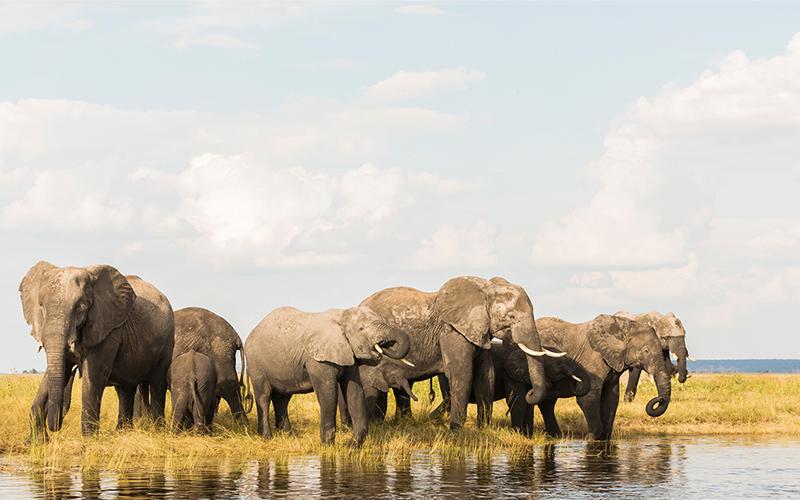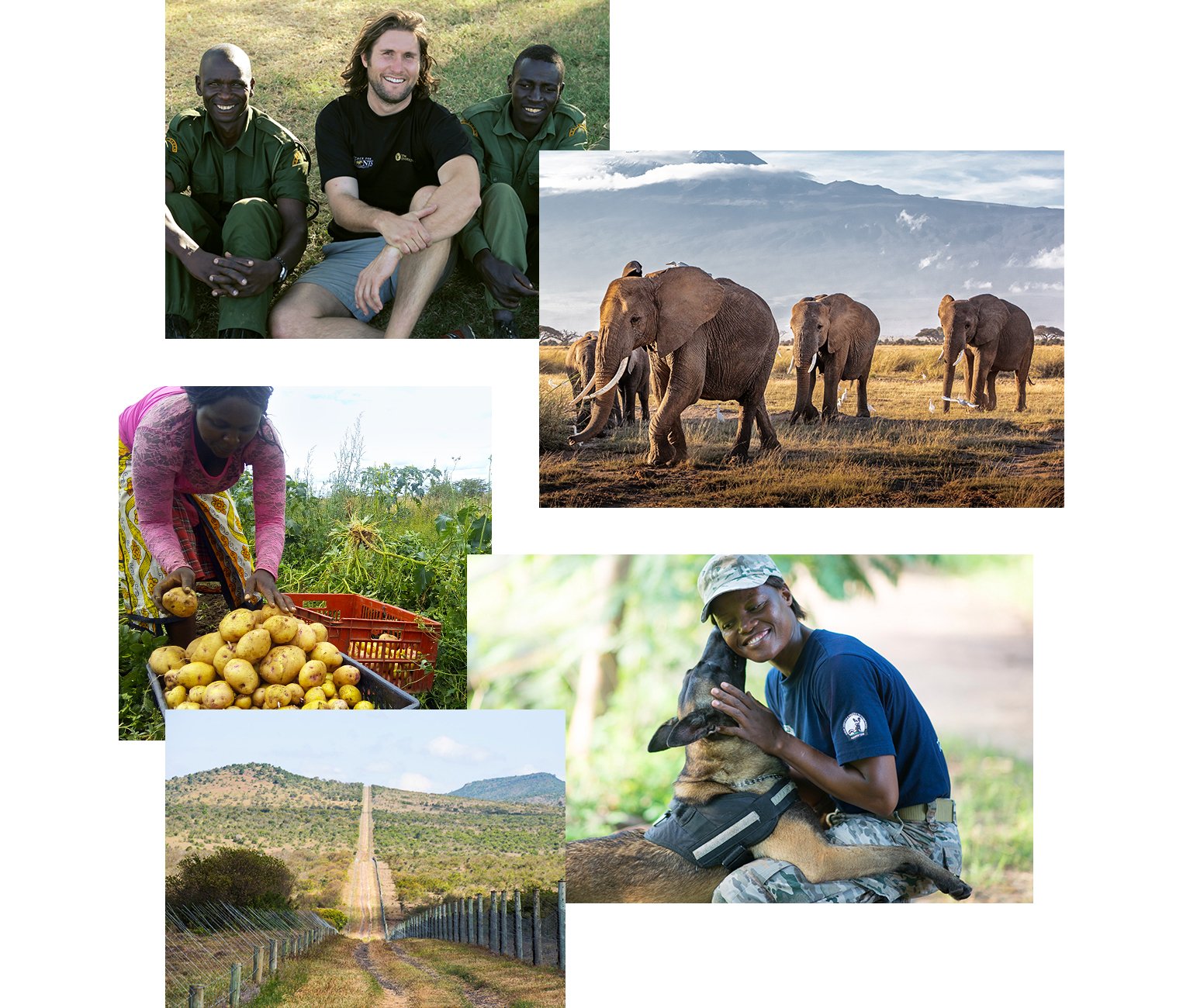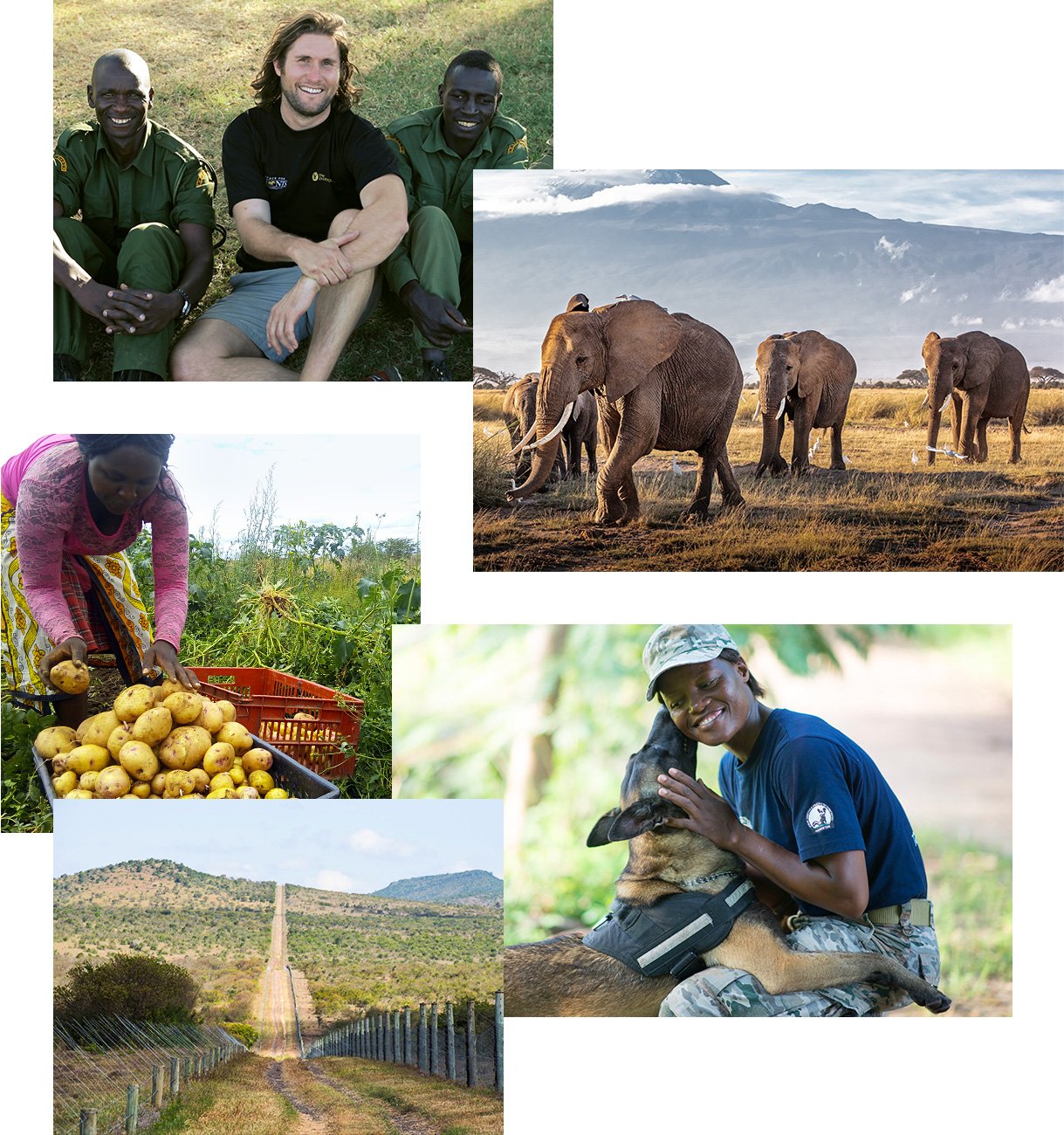Space for Giants
Behind the cause
Africa’s wild landscapes are shrinking, crowded out by a rapidly growing population building farms, towns and roads. This reduces habitat for wildlife, including blocking off the ancient migration routes for animals like elephants. This loss of habitat also means that people and wildlife now live closer to each other, increasing conflict and endangering the lives of both. At the same time, with little economic alternative, poachers—often backed by international criminal syndicates—kill endangered animals and sell their tusks and horns for profit.
Solving these intertwined problems is where Space for Giants comes in. Based in Kenya, founder Dr. Max Graham and his team pioneered a revolutionary approach to help save elephants and preserve broad swaths of their habitat, while also helping to promote human-elephant co-existence. This holistic tactic combines training and funding wildlife rangers to stop poachers, building hundreds of miles of elephant-safe electric fences to keep them from raiding farmers’ crops, working with governments to create a “wildlife economy” that generates jobs in roles from eco-tourism to antipoaching, and income through programs like carbon trading.
Their success has been remarkable. In Laikipia, Kenya, this approach, combined with conservation efforts by partners in the landscape, helped cut the number of poached elephants by up to 97% from peaks in 2012. In 2019, the livelihoods of thousands of people were protected. With these results, Space for Giants continues to scale up, last year doubling the number of countries they operate in to nine, home to 85% of Africa’s remaining elephants, from Gabon to Botswana and Uganda. With fallout from the Covid-19 pandemic—job losses, economic shut-down and hunger—support for these programs is more critical than ever.
“I love how big Max thinks,” says Sylvie Chantecaille, who launched our first partnership with Space for Giants with Lip Veil in 2017, adding Luminescent Eye Shade in Elephant in 2019, which has so far yielded in excess of $150,000 for the nonprofit. “Animals need to move freely, and space is vital for elephants to remain healthy and thriving. The biggest problem we are facing is the disappearance of wild spaces, and we were so happy to create this limited-edition collection to honor and benefit the gorgeous lands and animals of Africa.”
From top: CEO Max Graham with rangers; elephants on
their migration route; a Kenyan farmer who is able to grow her
crops with protection from a Space for Giants “smart fence”;
an anti-poaching team member; smart fence in Kenya.






